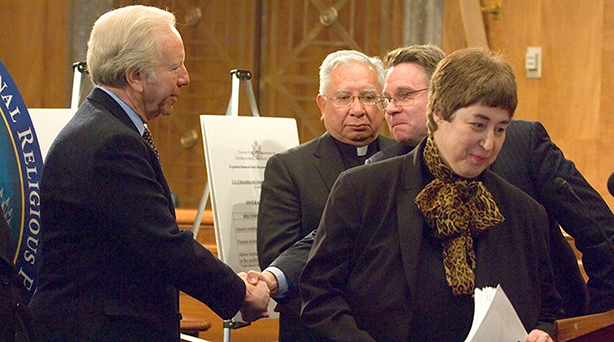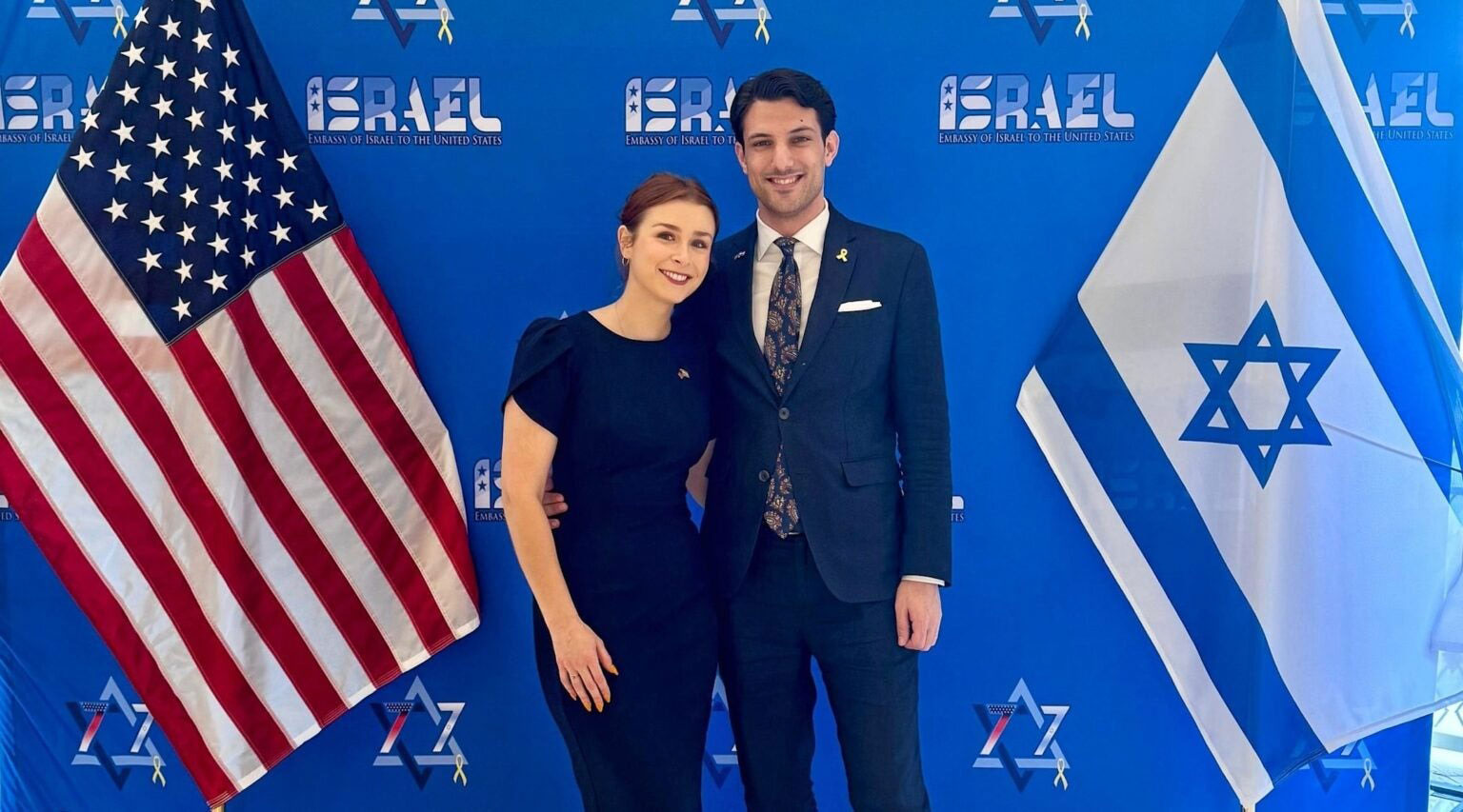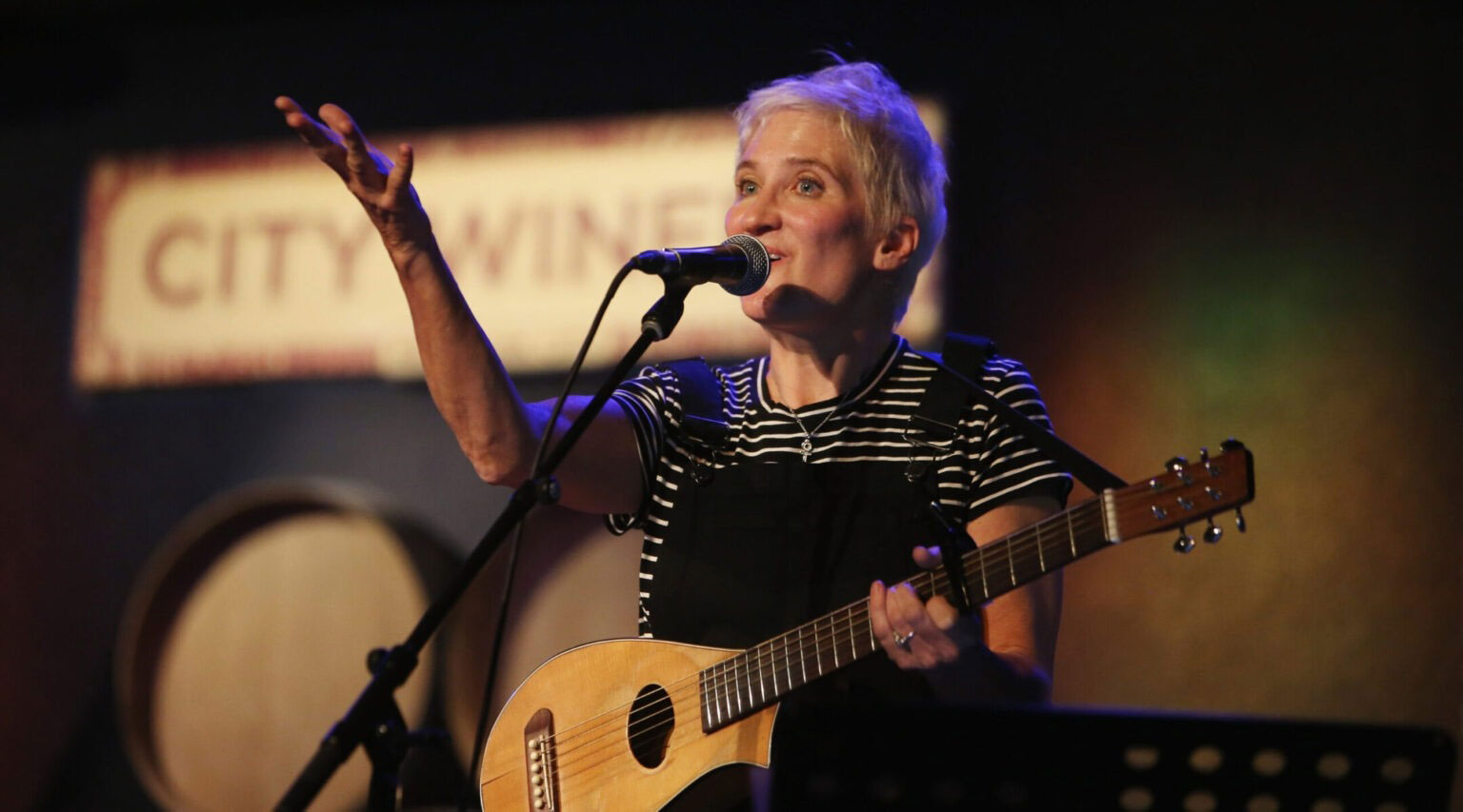Courtesy of JTA. Photo credit: Douglas Graham/Roll Call/Getty Images
Felice Gaer, at right, then chair of the U.S. Commission on International Religious Freedom, takes part in a news conference presenting its report card on the two-year-old “Report on Asylum Seekers in Expedited Removal,” Feb. 7, 2007; at left, Sen. Joseph Lieberman (D-Conn.) shakes hands with Rep. Chris Smith (R-N.J.) as Bishop Ricardo Ramirez, commissioner of the USCIRF, looks on
(JTA) — For over 30 years, Felice Gaer Baran directed the American Jewish Committee’s Jacob Blaustein Institute for the Advancement of Human Rights, assuring Jews a seat at the table in global debates around torture, political repression, LGBT rights and antisemitism.
After the 2001 World Conference against Racism in Durban, South Africa devolved into what she called “a cacophony of Israel baiting and outright anti-Semitism,” she worked with U.S. and European officials to demand change at a U.N.-sponsored body that defamed Israel and the Jews, and to restore the body’s focus on the scourge of racism in all its forms, including antisemitism.
“Lo and behold, the United Nations has produced a new draft seeming to meet those conditions,” Gaer wrote in a JTA oped in 2009. “In actuality, however, there is still quite a way to go.”
Progress and setbacks are facts of life for human rights activists like Gaer, who died Nov. 9 in New York City at age 78. The cause was metastatic breast cancer, AJC said in announcing her death.
In 1999, Gaer became the first American and first woman to serve on the 10-person United Nations Committee against Torture, when it became an important forum for protecting women, religious minorities and members of the LGBT community from violence.
“Her rigorous and unsparing critiques — and her practice of inquiring about alleged victims of torture and arbitrarily imprisoned lawyers and advocates by name in public meetings — occasionally provoked angry outbursts by government officials accustomed to deferential, non-adversarial treatment in U.N. settings,” the AJC statement recalled. “However, Gaer’s approach turned what might otherwise have been pro-forma exercises into valuable opportunities for advocates to secure formal U.N. recognition of their claims.”
Gaer championed the rights of religious minorities and victims of religious-inspired violence as an independent expert member of the bipartisan U.S. Commission on International Religious Freedom from 2001-2012.
More recently, she helped alert the U.N. to rising global antisemitism, an effort that culminated in an action plan on antisemitism issued by the U.N. Special Rapporteur on Freedom of Religion or Belief in 2022.
Gaer was born on June 16, 1946 in Englewood, New Jersey, one of three children of Abraham Gaer, a businessman who owned a toy shop, and his wife Beatrice Etish Gaer. She was raised in Teaneck, New Jersey and attended Teaneck High School.
At Columbia University’s Russian Institute (now Harriman Institute) she received a Master of Arts degree in 1971 and a Master of Philosophy degree in Political Science in 1975.
Gaer became director at the Jacob Blaustein Institute in 1993 after serving as a program officer at the Ford Foundation — focusing on the Soviet Union and Eastern Europe, as well as arms control and human rights — and later as executive director of the International League for Human Rights from 1982 to 1991. She also served as director of European Programs for the United Nations Association of the USA, an organization that advocates American support for the U.N., from 1992 to 1993.
Gaer chaired the steering committee for the 50th anniversary of the Universal Declaration of Human Rights and received the First Freedom Center’s National Religious Freedom Award in 2010.
In 1975, she married Dr. Henryk Baran, a professor at the State University of New York at Albany. He survives her, as do their two sons — Adam, a filmmaker and curator, and Hugh, a workers’ rights attorney.
In the 2023 interview, she quoted the rabbinic sage Hillel to sum up her approach to human rights: “He said, ‘If I’m not for myself, who will be, and if I’m only for myself, what am I? And if not now, when?’”





